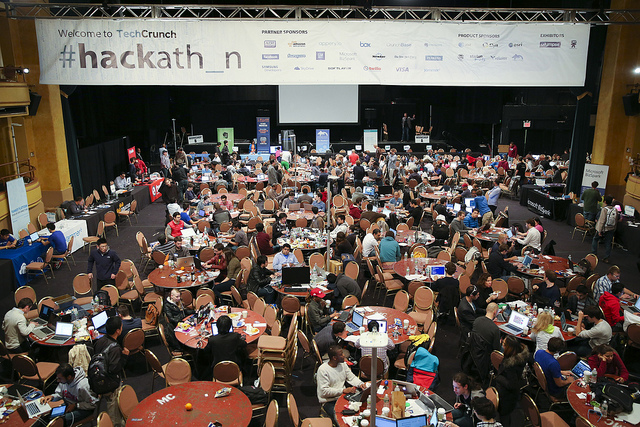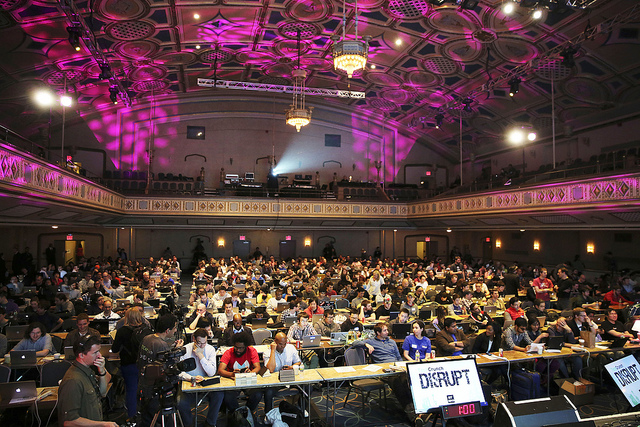Attending a Hackathon

This was about the biggest hackathon in the east coast or possibly in the entire nation with a record amount of attendees in the hundreds.
Only 160 teams presented with teams ranging from 1-4 people. For me it was my first one and I was a bit skeptical at first. Prior to this I’ve heard of companies holding hackathons and wondered about the benefits. I thought about it and realized that it is similar to crowd-sourcing so it mainly benefits the host but what’s in it for the developer/hacker?
You get a variety of developers coding for an extended period of time at no additional pay to create something the host can sell or profit from. In return the host will provide snacks, pizza, and beer! Wow… not really, this just makes viable sense for the business hosting the event. Okay so there’s really more to it depending on the size of the hackathon and the benefits for the developers can be equally beneficial. I can tell you the two essential things you should check for:
- Sponsors offering prizes, preferably cash to implement their software.
- Press such as journalists, preferably with a camera.
Another consideration is whether you have the rights to keep your code, which you totally should, and I wouldn’t bother attending one that strictly prohibits this. Continue reading because you will find out that you don’t have to be a level 900 coder nor a black hat hacker. It is actually possible to win even if you’re a axe-wielding tree hacker or hustler. There were actually quite a few of those at the Disrupt hackathon, the latter not former. So when the attendee list is in the hundreds how many presentations do you expect to have and how long should they be?
It boils to down to a quick persuasive presentation, because most likely you won’t have time to fully demonstrate the functionality of your application under two minutes. Getting the point yet? It’s the idea that counts and how you present it. Design is key as well! Ensure you team up with a designer that will make the graphics and style your web app, because it will get you much closer to winning. If you’re a solo dev you can use templates, themes, or boilerplates.

Once you’re nearing the deadline and some part doesn’t work then don’t treat it as an exam ignoring the remainder of questions. Instead continue and simulate the feature you want to achieve. The presentations I’ve seen had more than half with simulated data. It doesn’t really count against you because if people buy into your idea you can just complete it later. In fact there will be developers in attendance that will present projects they’ve started before the hackathon (I know this because I went around talking to attendees at the beginning) and since you will be working on your own computer there’s nothing really stopping you from using existing code. It works like the honesty policy so you should start your project from scratch.
If a journalist is present I suggest taking the initiative to meet them but do so during the hackathon so they can get an idea of what you’re working on. It is likely press will write about the overall event and not strictly about the winners, so get coverage even if you don’t win.
Overall it was a great experience at a great location with great people and excellent catering.
Here’s the article that includes me and the project I worked on (I’m near the bottom) http://techcrunch.com/2013/04/27/meet-the-hackers-and-their-promising-projects-at-the-disrupt-ny-hackathon/
View all the project submissions for Disrupt Hackathon here http://techcrunch.com/events/disrupt-ny-hackathon-2013/video-clips/


Leave a Reply
You must be logged in to post a comment.